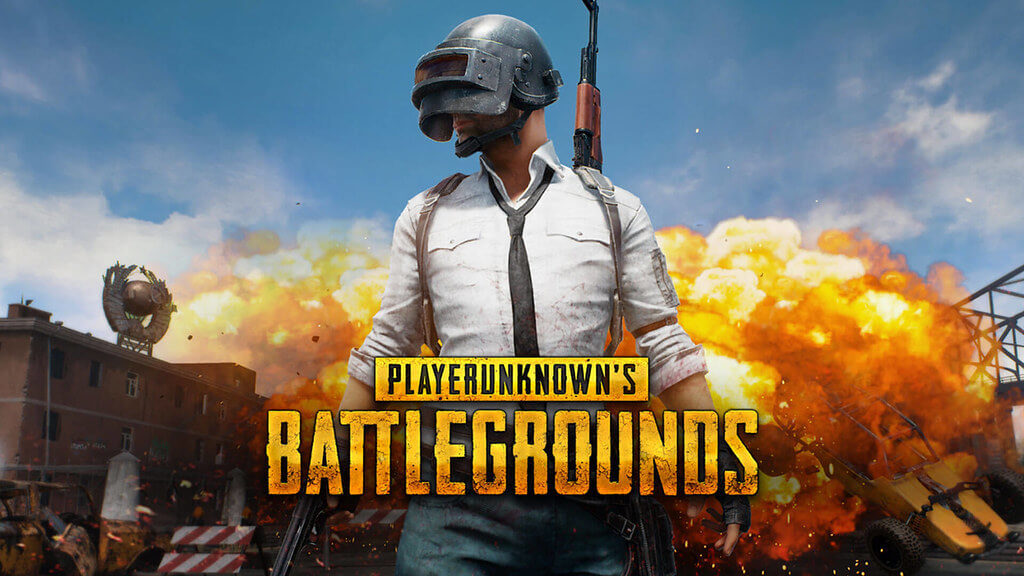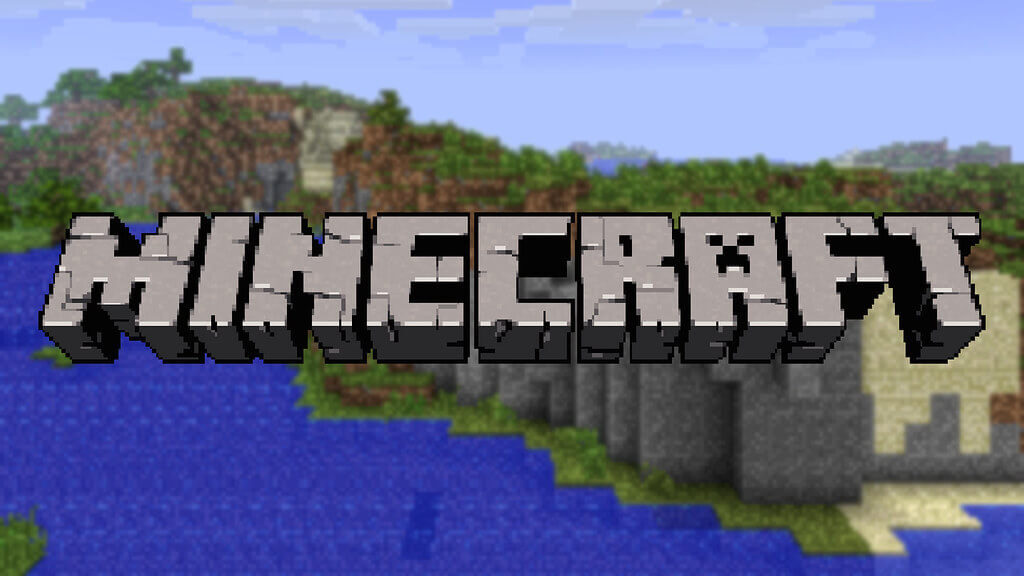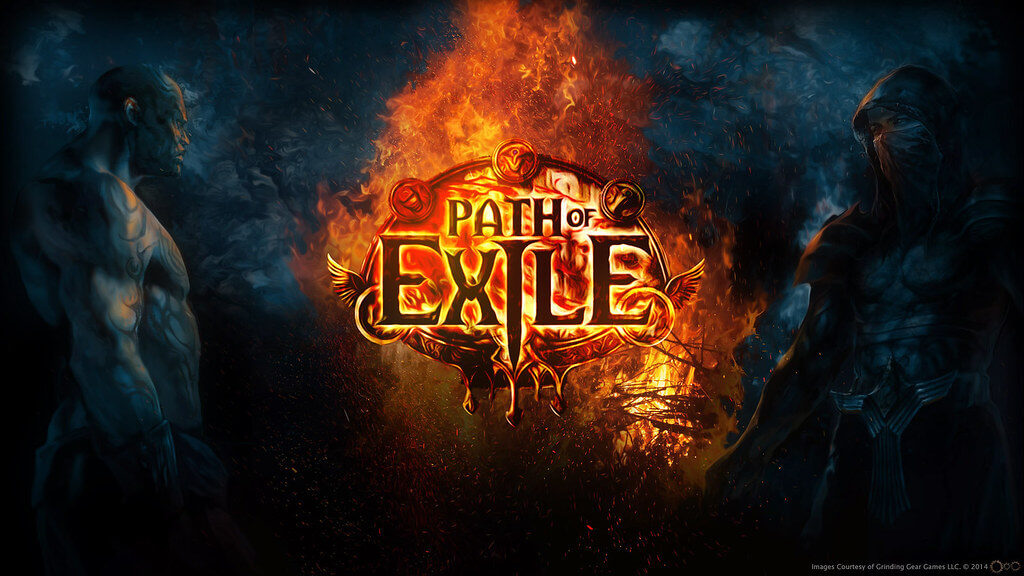9 Most Addicting Games in the World
What are the most addicting games in the world? Here is our a list of the top 9:
Some video games are more addicting than others.
I couldn’t see myself spending more than a few hours on something like Solitaire, but if you put me in front of Dark Souls then it’s a disaster waiting to happen.
At Game Quitters, we see the same names pop up over and over again when people are talking about the most addicting games. There’s a list of 9 games that cause more problems for gamers than anything else.
When you see the list you’ll understand why.
Modern video games are a far cry from the games of old. They’re no longer just intended to provide a few hours of entertainment. Gaming companies know exactly how to keep you hooked.
They understand how often to reward you, how to tailor their game to specific people, and how to extract as much money as possible from their players.
Video games of today are quite literally designed to be addictive.
They fulfil so many of our basic human needs such as social connection, escape, growth and challenge. Nothing else in the world accomplishes this as effectively as gaming.
In our list of the most addictive games, we’re also showing you which needs you’re fulfilling in them. This should help anyone that wants to be less reliant on gaming to help them overcome their problems.
So, if you know that you struggle with a video game addiction but don’t want to quit entirely then make sure you stay away from these 9 addicting games.
List of Most Addicting Games

Fortnite
Type of game: social, challenge, competition, free
Going from unknown to worldwide sensation within a year cements this game at the top spot on our list. Children are so addicted to Fortnite that it’s causing panic in a generation of parents that have no idea how to cope.
Related: Parent’s Guide to Fortnite Addiction
People are losing thousands of dollars to oblivious kids, children are wetting themselves to keep playing, and throwing tantrums if they can’t play their beloved Fortnite.
With over 250 million players worldwide, $200 million monthly revenue, and a booming eSports scene it’s safe to say this game isn’t going anywhere soon.
Although, there are signs that fewer people are playing the infamous Battle Royale. Perhaps a Fortnite-free future isn’t as far away as we think?
League of Legends
Type of game: social, challenge, growth, competition, free
Ah, League of Legends. No other game has quite the same effect on me as this one. I can go from loving it to wanting to emigrate to a remote island in a heartbeat; just to escape its toxic community and incessantly addictive gameplay.
So much so I wrote a guide on how to quit League of Legends. We have a lot of people at Game Quitters who decide to continue playing games, but find their quality of life improve 10x just by cutting out LoL.
But what makes League of Legends so addictive?
After seeing countless people talking about it, I think I’ve finally come up with a pretty good answer to this question.
When you start playing the game, you’re terrible. The idea of last-hitting and ganking hasn’t even approached your radar yet. But, as you slowly learn the mechanics and becoming familiar with each champion something starts to change.
Gradually, after hours of practice, you start to enjoy it. Maybe you landed a game-winning skillshot or successfully defended your base against a 5-man push and earnt a pentakill…
Whatever is, you start to see yourself grow. Within months your skill level has improves dramatically, and you start pushing your way through competitive ranked matches. You might start up a team with your friends, or join one online. All of a sudden you’re not socially connected to the game. After 6 months or so you’re hooked.
It’s a deadly combination, that has turned League of Legends into the most popular game in the entire world. The only reason it’s not top of our list is that Fortnite has taken over an entire generation of children in 1 year. Which is, although worrying, inarguably impressive.
Despite this, you can’t deny the game is incredibly toxic. It’s bad for your mental health, and I firmly believe that unless you’re able to limit the time you spend playing it, then you shouldn’t be playing it at all.
PlayerUnknown’s Battlegrounds (PUBG)

Type of game:social, challenge, growth, exciting
When PUBG got released back in 2017, it took the world by storm. It quickly became the most popular game of all time while it was still in beta, and still sees huge numbers of people logging in to play every day.
However, it wasn’t until the release of PUBG Mobile that the brand got taken to new heights.
Being one of the most-played games in Asia, the popular app is bringing in almost $5 million dollars a day. That number is only going up.
When you start up PUBG, it’s difficult to see why this game is so addictive. The controls are clunky, the graphics are okay, and to top it off it costs more than every other game on the list.
But, similar to League of Legends, the game starts to shine as you get better and play with friends. Some of the most hilarious moments I’ve had in my gaming career have come about in PUBG. The oftentimes buggy nature of the game just adds to this. It’s also the reason why I got banned by my friends for driving a motorbike in the game. If you play you know what I mean.
Related: Parent’s Guide to PUBG Addiction
The game also comes with its fair share of adrenaline-filled, heart-pumping moments. Hearing an enemies footsteps as they’re scouting out your building. Or, you’re down to the final encounter, a 2vs2 in a field as the play area starts to close in around you. You finish the game and you feel physically drained. You might even be sweating.
Without hesitating, you and your friends throw yourself straight back into the action.
It’s really something you have to experience yourself to fully understand.
That being said, it’s crazy addictive. The social aspect combined with competition and growth comes together to create a game that’s sometimes impossible to put down.
PUBG addiction is a very real thing, especially in Asia. We hear stories every week of people losing their lives, and has become so bad that many countries are choosing to ban PUBG outright.
There’s no doubt it deserves a spot on our list of most addicting games.
World of Warcraft
Type of game: social, escapism, immersive, growth
I don’t think any game on our list has had quite the same impact on gaming as World of Warcraft. The only reason it isn’t higher up is because it no longer pulls in the same number of players as it did in its heyday. Although, with the recent release of WoW classic they saw a huge surge of returning gamers.
World of Warcraft provided an entirely new experience when it hit the scene in 2004. It allowed levels of immersion, social connection, and constant growth that had never really been attempted before. It truly defined the MMO genre.
Even today in 2019, WoW is used as a benchmark to compare new MMO’s to.
The founder of Game Quitters, Cam Adair, struggled with World of Warcraft addiction more than any other game. You can listen to his story here:
With over 12 million regular players in its prime, and however many millions coming back for the return, World of Warcraft remains one of the most popular online games even today.
Minecraft

Type of game: social, immersive, growth, creativity, accessible
Yet another industry-changing video game for our list – are you seeing a trend? Minecraft may be single-handedly responsible for a new generation of engineers and architects.
This game allowed tens of millions of people to unlock their creativity, and explore the far reaches of their imagination on an unprecedented scale.
The game has gone through a number of peaks and troughs in terms of popularity. With the rise of YouTubers such as Sky and BlueXephos skyrocketing to worldwide fame early on in the game’s release, we’re now seeing the game reach new heights 10 years on with people like PewDiePie creating a new wave of Minecraft fans.
As of writing, it’s currently the best-selling game of all time with over 175 million copies sold. One reason for this is the game’s accessibility and appeal to both younger and older audiences. The game can be as simple or as complex as you want it to be, and it’s incredibly easy to get started.
That doesn’t mean it escapes the label of being addicting for so many players around the world. The combination of social connection, immersion, and its ability to capture the attention of young people so easily makes it a breeding ground for addiction.
Young people are particularly vulnerable to the over-stimulating nature of video games. When you realise that the game is being used in classrooms, this concern starts to become more valid. I think gaming can have a place in education, it just needs to be done in a safe and responsible way.
The Elder Scrolls V: Skyrim
Type of game: immersive, escapism, endless, growth
Games such as Skyrim were particularly addictive for someone like me. The greatest need I fulfilled through gaming was the need for escape. I wanted to get away from the struggles I faced in my real life, and Skyrim was the perfect place to do that.
When it was released in 2011, it completely changed my life. The graphics, world, and story was like nothing I’d experienced before. I think I racked up 24 hours of playtime in the first 32 hours of its release. Which, looking back, is staggering to me. Years later, when I was struggling with depression in university, Skyrim became my go-to game.
With more mods than I could handle, the level of immersion and realism I could achieve allowed my Skyrim addiction to reach new heights. It’s one of the most cited games in our community and in the StopGaming subreddit for the cause of people’s relapse, and it’s easy to see why.
When you can get lost in games such as Skyrim, it allows you to create an entirely new life for yourself. You’re in control, you have total power, and nothing can go wrong. It’s no wonder then that people who have a tendency to run from their problems, whether it be lack of social life, confidence, or passion, find an easy escape in Skyrim.
Related: How to Quit Playing Skyrim
Clash of Clans
Type of game: free, social, mobile, growth
I can almost hear the collective groans from here in Thailand. It also isn’t the only mobile game in our list, if you’re one of the people that refuses to acknowledge mobile gaming as real gaming.
However, with the massive explosion of smartphones and their integration into our everyday life, it was only a matter of time before people found themselves addicted to games on the small screen.
While mobile gaming can be great for wasting a half hour or so on your commute, the current state of mobile games is in shambles.
The industry has transformed from fun minigames to developers seeing how far they can milk their players for as much money as possible. There really is no justification for the sheer number of tactics the industry is using to keep people playing for longer, except to get more money.
It’s hard to point a finger at video games and say “you’re addictive”, but we can firmly say that it’s the opposite when mobile gaming gets involved.
There’s an endless number of stories from people who have lost thousands of dollars on microtransactions. Whether you’re 4 or 40 doesn’t matter – Big Gaming doesn’t discriminate.
They even go as far as having specific names for people that spend a lot of money in their apps. Want to have a guess what it is?
Whales.
All you are is a big fish on a hook, and their only concern is how they can keep you biting for more.
If you haven’t seen it yet you should definitely watch this video at a mobile game developer conference to learn all about ‘whaling’:
It really is eye-opening.
This turned into a rant about mobile gaming, instead of actually talking about Clash of Clans. But, you get the idea. Here are some facts to finish off with:
- Total earnt since 2012: $6.4 billion
- Over 600 million players since its launch
- Earns over $2 million a day
- Most money spent in-game by one player: $1m+
Path of Exile

Type of game: social, endless, escape, growth, challenge, free
I might start sounding like a broken record soon, but Path of Exile is my personal poison when it comes to addicting games.
When I first discovered this game I hated it. I thought it was clunky, boring, and pointless. Fast forward a couple of years and it soon became my most-played game of all time.
What makes this game addictive is its use of seasons, or leagues. This isn’t an uncommon mechanic, Fortnite is another game that makes great use of it. However, for those of you unaware as to how PoE works, the game is impossible to complete in those 3 months.
Being an MMO, the majority of your time is spent in the ‘endgame’. The actual story takes around 6-10 hours to complete. Inside this engame, there are multiple completion goals you can aim for, such as defeating specific bosses, or you can just explore the league mechanics.
On top of this, the game features the most ridiculous skill tree you’ve ever seen (no seriously just look at this) and offers an endless number of class combinations and customization available to you.
Everything resets after these 3 months; your gear, your money, your characters. Everything. So you’re forced to go through exactly the same thing every time a new league comes around. But it never gets boring.
A quick Google search for Path of Exile addiction shows that it’s not an uncommon problem. On top of this, the game features an extensive microtransaction store as well as a number of loot boxes. This has caused some players to request their account have purchases disabled due to their addiction to gambling and collecting getting out of control.
PokemonGO
Type of game: free, social, mobile, accessible
The last game on our list, but no less deserving of a spot than any of the others. I don’t think anyone expected PokemonGO to be quite as popular as it is.
Despite only being 3 years old, it’s now the most-played mobile game of all time. On top of this, it also set the record for the highest-grossing first month in mobile gaming history, generating over $200 million for its creator Niantic.
What made Pokemon Go so popular?
It was due to a number of factors, but most importantly it was a free-to-play game that made use of the already massively popular world of Pokémon. If you grew up with Pokemon games, then there’s no doubt you’ve dream about becoming a trainer or living in the Pokemon universe.
This game turned that dream into a reality.
You can explore the real world with your friends, catching and training Pokemon, and subsequently battling them with each other.
While the game has been very successful in getting otherwise inactive people to get outside more (players have walked over 20 billion km in total), it hasn’t been without its share of criticism.
For example, one source states that almost 300 crimes in the UK were linked to Pokemon GO in its first month of release. Its been a point of concern for children that might have a tendency to wander off and get lost or find themselves in dangerous places. However, is that really much different to what it was like growing up before the 2000s? We were out all the time without a problem.
Regardless, what may seem like a harmless game has been the cause of a number of stories of addiction. Someone has even written a book about Pokémon GO addiction!
Whichever side you choose to argue on, there’s no denying that Pokemon GO’s massive popularity and addicting nature lends itself a spot on this list.
Are You Addicted to Gaming?
Video game addiction may seem ridiculous – why don’t people just stop playing?
In reality, for some people, it’s impossible to put them down. When they stop playing they’ll suffer the same withdrawal symptoms, both physical and mental, that you see in more traditional addictions.
The reality is that video game addiction, or gaming disorder, is very real. It was fully realised by the World Health Organization as a disease in 2019. Here’s their exact definition:
Gaming disorder is defined in the 11th Revision of the International Classification of Diseases (ICD-11) as a pattern of gaming behavior (“digital-gaming” or “video-gaming”) characterized by impaired control over gaming, increasing priority given to gaming over other activities to the extent that gaming takes precedence over other interests and daily activities, and continuation or escalation of gaming despite the occurrence of negative consequences.
But, how do you know if you’re addicted or just playing too much? Fortunately, we’ve created a quiz for gamers to determine whether or not they have a video game addiction.
Take the video game addiction test
Generally, the red flags you should be looking for are:
Being irritable or moody when you can’t play
Constantly needing to play more and more (“it’s never enough”)
Losing interest in other activities (e.g. sports, exercise)
Being deceptive (e.g. stealing money to buy things in-game)
Jeopardizing school, work, and/or relationships (in order to game)
If you’ve noticed some of these warning signs in your own life, don’t worry. You’re not alone.
If you’re serious about changing your life, a structured guide created by experts is the way to go.
The people that try to hunt for shortcuts, like most gamers, don’t do anywhere near as well as those that take the long way.
It’s a marathon, not a sprint

The first thing you need to internalize is that trying to quit gaming is a journey. It’s a journey full of hurdles, barriers, and difficulties that you’re going to need to overcome.
You can’t stop playing video games and expect it to be plain sailing for the rest of your life.
You’ll have cravings, social pressure, boredom, and a whole host of issues to deal with.
For example, I first quit gaming about 5 years ago. Sometime during my second year of university. However, it wouldn’t be until this year that I finally quit for the last time. I went through countless relapses, bouts of depression, and failures before I overcame it.
Related: How to Quit Gaming in College: The Ultimate Guide
That’s not to say that your experience will be the same.
Some people stop gaming easily, and others will find it nearly impossible.
The majority of the time, it’s down to having a poor mindset.
If you want to learn how to build a winning mindset, level up your life, and take back control then our Respawn guide is for you.
It features over 70 pages of amazing advice as well as worksheets, videos, and interviews. All for less than the price of a new game.
